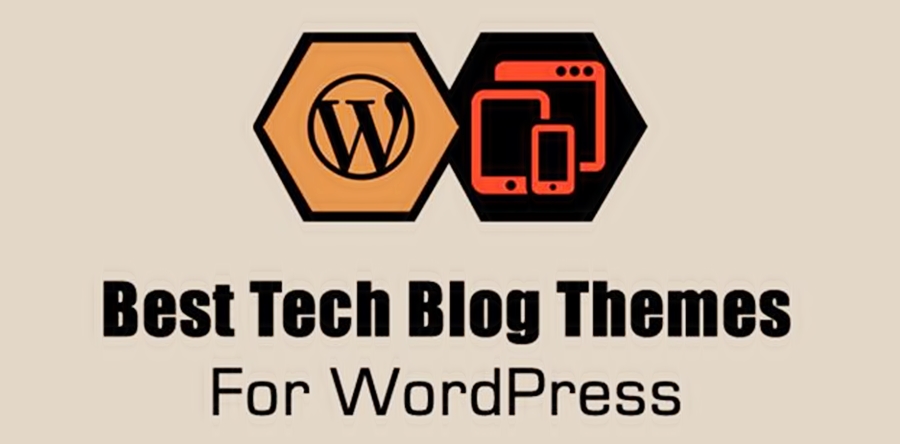Discover the Best tech blog for the most recent Trends and Technologies in Technology
Discover the Best tech blog for the most recent Trends and Technologies in Technology
Blog Article
Just How Blockchain Modern Technology Is Revolutionizing Information Protection
Blockchain modern technology is essentially modifying the landscape of information protection by introducing a decentralized framework that assures enhanced transparency and strength. Unlike typical systems, which depend on centralized data databases, blockchain distributes information throughout a network, reducing susceptabilities and single factors of failing. The use of innovative cryptographic methods makes sure that data continues to be tamper-proof, cultivating count on amongst users and stakeholders.
The Essentials of Blockchain
Blockchain technology, a cutting edge idea in electronic data management, basically transforms how info is stored and secured. At its core, a blockchain is a distributed journal that tapes purchases across a network of computer systems, guaranteeing openness and immutability.
Trick to understanding blockchain is the hashing procedure, which encrypts transaction data right into an unique alphanumeric code. This cryptographic feature ensures that any kind of alteration in the deal data causes a totally different hash, thus protecting against meddling. The agreement system, another crucial component, confirms and verifies brand-new purchases with a network of nodes, thus removing the demand for a centralized authority.
Moreover, blockchain's append-only structure ensures that information, as soon as included, can not be erased or modified. This particular guarantees a long-term and proven document of deals, promoting count on amongst individuals. Consequently, blockchain supplies a durable structure for information honesty, using industries a trustworthy technique for tracking and managing electronic info in a protected, clear manner.
Decentralization and Security
Decentralization, a core concept of blockchain modern technology, considerably enhances information protection by distributing control across a network instead than depending on a singular, centralized entity. By dispersing data throughout countless nodes, blockchain guarantees that also if one node is endangered, the entire network remains safe and secure.

Each participant in the network has accessibility to the whole blockchain, enabling them to verify and audit purchases separately. Generally, decentralization is instrumental in boosting data safety in blockchain networks.

Cryptographic Methods
At the heart of blockchain technology, cryptographic methods play a pivotal function in guarding information, guaranteeing both discretion and integrity. These techniques are fundamental to the blockchain's ability to firmly tape-record deals in a decentralized way. Cryptography in blockchain utilizes a mix of uneven and symmetric algorithms to encrypt data, making it obtainable just to accredited parties - Best tech blog. Public and personal essential pairs are main to this procedure, permitting protected verification and identity verification without revealing sensitive details.
Hash features are another important part, changing input data right into a fixed-size string of characters, successfully creating a distinct electronic fingerprint for every block. This makes sure that any type of effort to modify the information will result in a totally different hash, thus keeping the immutability of the blockchain. Additionally, digital trademarks validate the authenticity and stability of deals, providing a layer of non-repudiation.
The decentralized nature of blockchain, integrated with durable cryptographic techniques, gets rid of the need for intermediaries, lowering possible vulnerabilities. As blockchain modern technology advances, improvements in cryptography such as zero-knowledge proofs and homomorphic security continue to enhance safety steps, better fortifying information security in this innovative electronic ledger system.
Use Situations Across Industries

In the health care market, blockchain makes certain the safe and secure Read Full Report storage and sharing of individual documents, promoting interoperability while securing delicate information from unauthorized accessibility. This innovation empowers people with control over their case history and helps with seamless coordination amongst medical care suppliers.
Supply chain administration benefits substantially from blockchain's unalterable ledger, which makes sure traceability and credibility of items from origin to customer. By boosting openness, blockchain helps minimize concerns such as counterfeiting and dishonest sourcing.
Additionally, blockchain's decentralized nature is improving the power sector by enabling peer-to-peer energy trading, where customers can purchase and offer excess renewable resource directly. This cultivates an extra reliable and lasting power ecosystem.
In the world of copyright, blockchain gives a tamper-proof platform for developers to register and safeguard their jobs, ensuring rightful attribution and reasonable settlement. These varied usage situations underline blockchain's duty as a pivotal force in redefining information security across sectors.
Future of Information Security
As we seek to the future of data protection, blockchain technology is poised to play a crucial function in securing digital information. With its decentralized and unalterable attributes, blockchain offers a robust framework for securing sensitive information against unauthorized accessibility and cyber dangers. This innovation ensures that once information is videotaped, it is nearly impossible to alter without detection, therefore providing a significant benefit over conventional data storage space approaches.
The integration of blockchain with other advanced modern technologies, such as expert system and the Web of Things (IoT), is anticipated to boost data protection techniques better. By leveraging smart contracts, companies can impose and automate safety and security procedures, decreasing human error and increasing efficiency. Additionally, blockchain's capacity to provide deducible and transparent transactions will reinforce count on and responsibility in information management techniques.
As regulatory landscapes evolve, blockchain's compliance-friendly nature will come to be significantly relevant. It can aid organizations satisfy rigid information defense regulations, such as the General Data Protection Guideline (GDPR) and the California Consumer Privacy Act (CCPA), by giving proven documents of data processing tasks. Inevitably, blockchain's one-of-a-kind click for info characteristics position it as a transformative tool in the continuous mission to secure the electronic globe against ever-evolving cyber hazards.
Conclusion
Blockchain technology stands for a paradigm shift in news data safety and security by leveraging decentralization and cryptographic strategies to enhance openness, trust, and information stability. Its capacity to remove solitary factors of failure and employ consensus devices significantly minimizes the danger of fraudulence and cyberattacks. This ingenious structure not only empowers customers with better control over their data yet likewise aligns with regulative conformity. As cyber hazards develop, blockchain becomes an essential device for robust information protection across various sectors.
Blockchain innovation is basically modifying the landscape of data safety and security by presenting a decentralized framework that guarantees enhanced openness and durability. Unlike traditional systems, which count on centralized data repositories, blockchain distributes information across a network, lessening susceptabilities and solitary factors of failing.Decentralization, a core concept of blockchain technology, substantially enhances data safety and security by distributing control across a network rather than relying on a singular, centralized entity.At the heart of blockchain innovation, cryptographic strategies play a critical role in protecting information, making certain both discretion and integrity.Blockchain innovation represents a paradigm change in data safety by leveraging decentralization and cryptographic methods to improve transparency, trust fund, and data stability.
Report this page